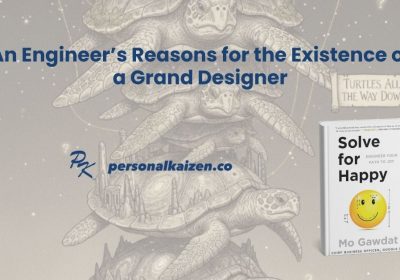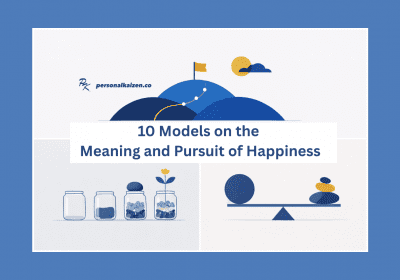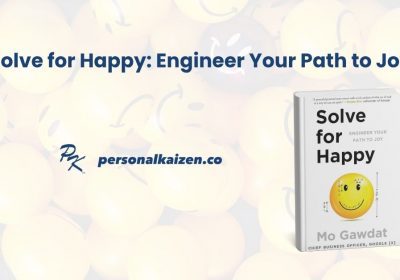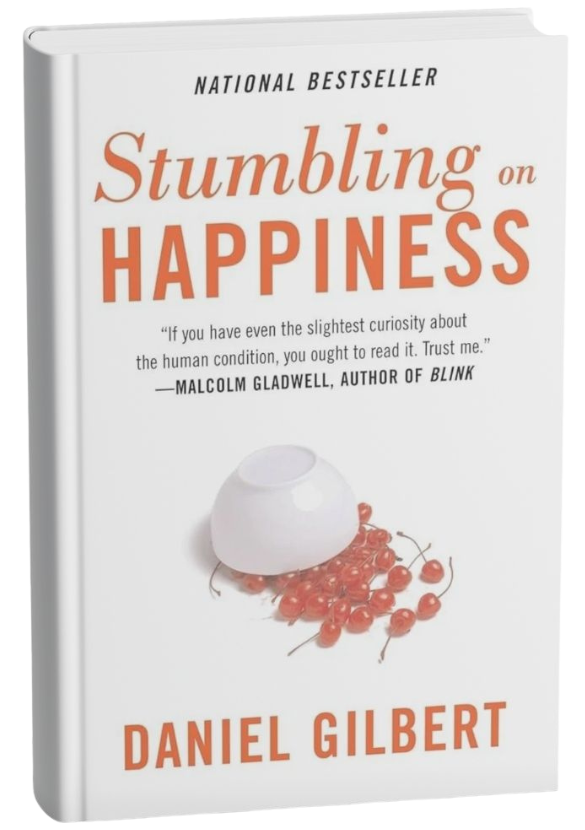
Have you ever made a big decision, certain it would bring you happiness, only to find yourself feeling the same as you did before? Or perhaps you’ve dreaded an upcoming event, convinced it would be a disaster, only to discover it wasn’t so bad after all. In his groundbreaking book, Stumbling on Happiness, Harvard psychologist Daniel Gilbert reveals the shocking truth: our brains are terrible at predicting what will make us happy. He shares the surprising science of “affective forecasting” and the range of biases that lead us to constantly misjudge our future happiness.
Gilbert’s central argument in Stumbling on Happiness is that humans possess a unique but flawed ability to imagine the future. Gilbert calls this prospection, and he meticulously outlines why our mental simulations of what will make us happy are often dead wrong.
“This is a book that describes what science has to tell us about how and how well the human brain can imagine its own future, and about how and how well it can predict which of those futures it will most enjoy.”
– Daniel Gilbert
Our Imagination Is Flawed
Gilbert offers this pop quiz: Who do you think will be happier one year from now?
- A lottery winner, with a ten-million-dollar grand prize.
- A paraplegic, who loses the ability to use the lower half of their body and can no longer walk.


The answer (based on actual studies) is…they are both about equally happy.
Wait, what?
Everyone gets this question wrong. We assume our imagined future is a perfect replica of reality, but it’s not. Our brains tend to leave out crucial, boring details and fill in the blanks with dramatic or positive ones.
Gilbert explains that humans have developed a powerful pre-frontal cortex for “prospection,” or imagining the future, but suffer from an impact bias, the tendency to overestimate the impact of future events. This is why a simple mental image of winning the lottery might be filled with endless joy, but it omits the mundane realities of dealing with taxes, security, and requests from long-lost relatives.
We Suffer from “Presentism”
Have you ever wondered why you often make commitments that you deeply regret when the moment to fulfill them arrives? When we said yes, we were thinking in terms of why instead of how, in terms of causes of consequences instead of execution. We failed to consider the fact that the detail-free event we were imagining would not be the detail-laden event we would actually experience. Doing something next month is “an act of love”, whereas doing it right now is “an act of lunch.”
Seeing in time is like seeing in space. Far away things are vague and lacking in detail. But when we remember or imagine an event, our brains seem to overlook the fact that details vanish. We conclude that the distant events are as vague as we remember them.
When we imagine our future selves, we do so from the perspective of our present self, and mistakenly assume our future desires and feelings will mirror our current ones. For example, a person who is currently single might overestimate how happy they will be with a partner, while a hungry person might overestimate how happy they will be with a big meal. We fail to realize that our motivations and emotional state are constantly shifting.

We Underestimate Our Resilience
Experiencing “presentism” still doesn’t explain why a paraplegic and a lottery winner are both equally happy one year later. Gilbert explains that humans have developed a psychological immune system to cope with our future.
Just as our bodies have a physical immune system to fight off disease, our minds have a system to help us cope with and feel better after negative events. We tend to rationalize, reframe, and find meaning in bad experiences. When we try to predict how we’ll feel after a negative event (like a breakup or losing a job), we fail to account for this powerful coping mechanism, and thus we overestimate how unhappy we will be.
The Power of “Surrogation”

Our general tendency is to think of ourselves as different from others – often for better, but sometimes for worse. When people are asked about generosity, they claim to perform a greater number of generous acts than others. But when asked about selfishness, they claim to perform a greater number of selfish acts too. When people are asked about their ability to perform an easy task, (e.g., driving, riding a bike), they rate themselves better than others, but when asked about their ability to perform a difficult task (e.g., playing chess or juggling), they rate themselves as worse.
Humans are much more similar than we know! Given how unreliable our own imaginations are, Gilbert proposes we stop trying to imagine the future and instead, ask others who have already been through the experience. The best predictor of how you will feel is to find someone who is currently experiencing what you are considering and ask them how they feel. This is called surrogation, and we have shared this concept before when we discussed why you should always know and use base rates. Understanding how others have felt is a better predictor than trying to guess for yourself.
Surrogation is a cheap and effective way to predict one’s future emotions, but because we don’t realize just how similar we all are, we reject this reliable method and rely instead on our imaginations, as flawed and fallible as they may be.
How to Stop Stumbling on Happiness
I apply the lessons from the books I read and blog posts I write to my 10 Rules for Life. When reading Stumbling on Happiness for the second time, I thought about how to apply the lessons from the book to my life and came up with the following:
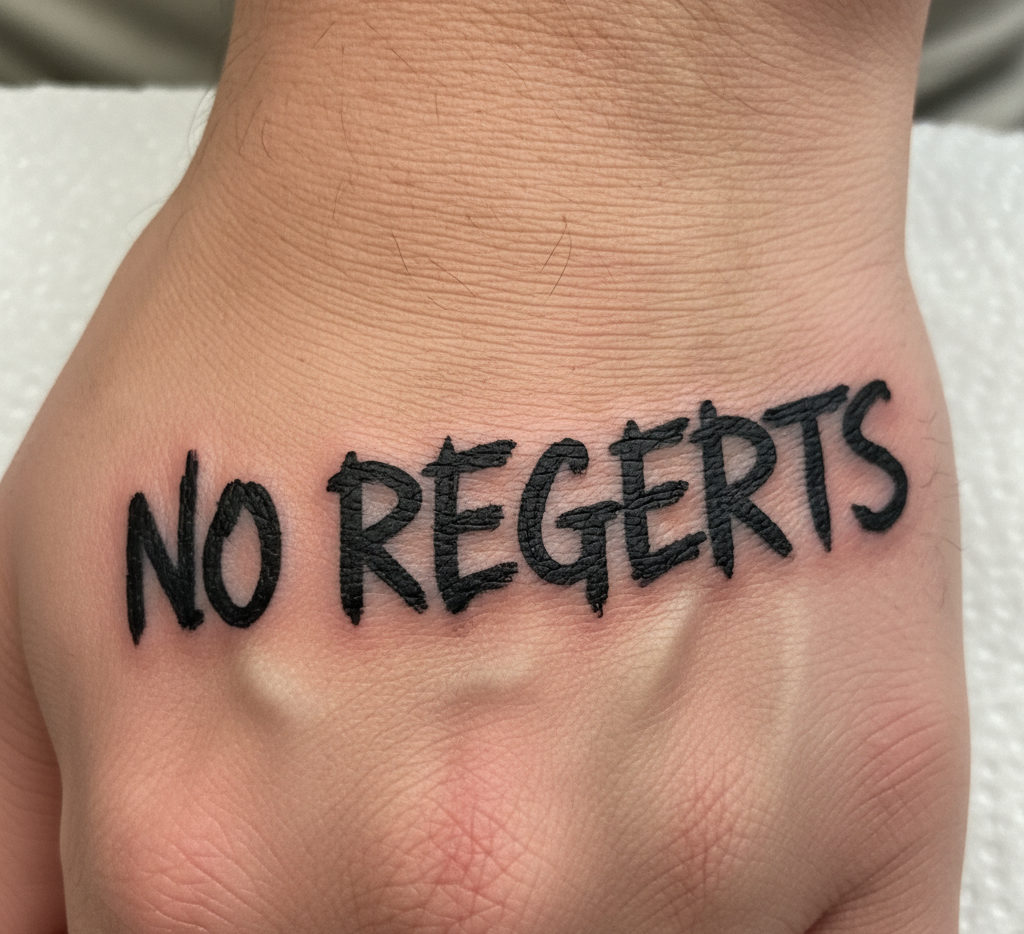
- Realize that we are not that different and special (Rule 10) and learn from others. If you’re considering a career change, talk to someone who has already made that switch. If you’re thinking about a big move, ask people who live in that new city how they feel about their day-to-day lives. Their experiences are a much more accurate predictor of your future feelings than your own imagination.
- Since happiness is primarily based on attitude, we may as well have a positive outlook on life (Rule 4) and realize that most things will work out well in the end. Instead of fearing negative outcomes, recognize the power of your own resilience. Embrace the fact that you are more resilient than you think. In other words, Don’t Worry, Be Happy.
- Focus on the mundane. Our imaginations tend to focus on the dramatic, salient moments of a future event. When you imagine buying a new house, you picture the joy of the first party, not the stress of a clogged drain or the effort of yard work. To get a more realistic picture, force yourself to think through the day-to-day, mundane details of the future you’re imagining. This will provide a more balanced and accurate forecast of your long-term happiness.
- Choice doesn’t make us happier! Gilbert’s research shows that we are better off “burning the bridges” and being forced to stick with our choices. Have no regrets.
Summary
Stumbling on Happiness is one of the few books I have read more than once, and I highly recommend you read the entire book for a better understanding of the research. Whether you have read the book or not, please share your thoughts and questions below.

